I’m not going to beat around the bush any more.
I’m going to teach you about the birds and the bees.
Oo-er missus.
No need to blush, we’re all adults here.
I am of course, talking about birds and bees, literally - not the famous euphemism used to teach children about reproduction! (Phew!)
I’ve written about birds and bees separately in the past, as there are many lessons we can learn. But I’ve not written about them in this way before.
Ultimately, there’s huge significance in these two creatures throughout our scripture and a great deal we can learn from them, certainly about how we interact with ourselves and with others.
We need to be like a bird, as an individual.
And be like a bee, when it comes to others.
Let me explain.
What can we learn from birds?
Birds are mentioned a lot in the Qu’ran and also in the seerah. Even in our heritage, there’s a lot of mention of birds in art and poetry.
Birds also feature prominently in Chinese and Sanskrit literature, inspiring poetic and philosophical thought that connects the natural world to human expression and wisdom.
Their importance is reflected by their presence alongside the prophets Ibrahim, Dawud, Sulaiman and Isa (AS).
To put his heart at rest, Ibrahim was shown a divine miracle using birds. In the story of Dawud, it was revealed to the Muslims that birds frequently praise God in their communication. Sulaiman could speak to birds and appointed the Hoopoe bird as his messenger. And Isa was commanded to demonstrate God’s omnipotence by breathing life into clay birds.
And We subjugated the mountains and the birds to give glory along with David” Quran, 27:79
And David was succeeded by Solomon, who said, “O people! We have been taught the language of birds, and been given everything ˹we need˺. This is indeed a great privilege.” Qu’ran 27:16
… Do they not see the birds above them spreading and contracting (their wings)?” Quran 67:19
…Seest thou not that Allah is He, Whom do glorify all those who are in the heavens and the earth, and the birds with wings outspread?…” Quran, 24:41
Even is Surah-Fil, the story of the king with the elephants who came to invade Makkah in the year the Prophet was born, he was defeated and sent home by birds with rocks who became warriors for Allah.
The raven taught Cain how to bury his brother’s body.
There are also numerous hadith mentioning the love the Prophet had for birds, and even throughout our history.
“Place wheat on the tops of mountains so it cannot be said that a bird went hungry in the land of the Muslims.” Umar ibn ‘Abdul ‘Aziz
Farid ud-Din Attar in his 13th century epic poem “the Conference of Birds” narrated about a group of birds led by the Hoopoe (the wisest) coming to the realisation of their spiritual achievement through journeying towards God Almighty.
It got me thinking about them and why they are so revered.
I realised birds are a perfect representation of freedom and purpose. Here’s why:
Birds are humble and grateful. They recognise that all power and might is from Allah alone.
“Do they not see the birds suspended in mid-air up in the sky? Nothing holds them there except Allah. There are certainly Signs in that for people who have faith.” (16:79)
Birds Have Complete Reliance and Trust (Tawakkul):
Umar ibn Al-Khattab narrated that the Prophet Muhammad (PBUH) said: “If only you relied on Allah a true reliance, He would provide sustenance for you just as He does the birds: They fly out in the morning empty and return in the afternoon with full stomachs.”
The reliance of birds is that they do not store their livelihood. They have full trust that as Allah provided them with their food today, He will surely grant their food tomorrow as well.
Birds see the big picture:
They soar up high & have a clear view of the path forward, a sense of direction. They don’t fly aimlessly.
Birds go south for the winter:
They do hijrah and strive and struggle to get to a better place, if required.
Birds of a feather flock together:
A great example for like-minded people to unite and work together.
Birds are also highly efficient:
The condor was recognised by Scientific American magazine as the most efficient species at travel as it used the least amount of energy in order to travel 1km of distance. (Humans were fourth on this list!).
The best birds cannot be caged and controlled - they are MEANT to soar and excel and fly high to reach their potential— you cannot tie them down even if you try.
“Some birds are not meant to be caged, that’s all. Their feathers are too bright, their songs too sweet and wild. So you let them go, or when you open the cage to feed them they somehow fly out past you. And the part of you that knows it was wrong to imprison them in the first place rejoices, but still, the place where you live is that much more drab and empty for their departure.”― Stephen King, the Shawshank Redemption
Birds don’t worry about the haters.
“Did you ever see an unhappy horse? Did you ever see bird that had the blues? One reason why birds and horses are not unhappy is because they are not trying to impress other birds and horses.” — Dale Carnegie
Birds understand they have a gift and use it, no matter if others do it better.
“Use what talents you possess: the woods would be very silent if no birds sang there except those that sang best.” — Henry Van Dyke
Don’t aim for perfection, aim for progress. It would make for a colder and poorer world if we suppress our own talents for fear of failure.
Birds Are Brave and Take Risks:
“The bird dares to break the shell, then the shell breaks open and the bird can fly openly. This is the simplest principle of success. You dream, you dare and and you fly.”― Israelmore Ayivor
Birds persevere and are resilient:
Everyone has problems surrounding them. Just confront them head on, persevere along that path and you will eventually fly. Even baby birds do not have strong enough wings to fly the first time of trying. But do they give up?
Birds are grateful and positive:
“Birds sing after a storm; why shouldn’t people feel as free to delight in whatever sunlight remains to them?” — Rose Kennedy,
“You have to believe in happiness, or happiness never comes … Ah, that’s the reason a bird can sing — On his darkest day he believes in spring.” — Douglas Malloch
Birds Inspire Others:
Abbas ibn Firnas, a 9th century inventor was the first person to be able to fly. He said he was inspired by and studied bird flights and landings for decades before attempting it, and did so with the help of a pair of wings built from silk, wood and real feathers.
Many Islamic scholars, saints and sages have often referenced birds as an excellent analogy to learn from.
The heart is like a bird: love as its head, and its two wings are hope and fear.” - Ibn Qayyim.
Allama Iqbal also uses birds in his literature. Particularly the ‘Shahin’ (eagle or falcon) which is the metaphor he uses to represent and demonstrate his model of the pinnacle of what we should aim to be (known as Insan-e-Kamil, Mard-e-Momin or in English, the perfect man).
The Shahin is considered a majestic beautiful, elegant bird who is the most superior of all the birds, in stark contrast to vultures, crows and sparrows which are considered timid, weak and scavengers.
Here’s some of the distinct characteristics of the Shahin:
Vision: The shahin possesses exceptionally keen and acute eyesight (hence eagle-eyed) and has a vision that penetrates beyond the skies. Therefore a Mu’min should have the vision to see beyond the superficial and read between the lines.
Fearlessness: The most fearless of all the bird species and flies at high altitudes. It lives on a higher and different level, it is courageous and powerful.
Self-Sufficient: A shahin eats what it hunts itself. It does not gather food like sparrows nor scavenger like vultures, nor seek food from leftovers.
Solitude: It is not a social bird like seagulls that live in groups. Solitude is a key part of self discovery. Careful not to mix and is fiercely independent.
Doesn’t seek comfort: A shahin does not make a nest, just rests on rocks and sticks. Eats and breeds in mountains. Doesn’t need to settle, focus on what it needs to do, future/(akhirah) focused. Never tire of flying.
What can we learn from bees?
Ok, enough talk of birds. What about the humble bumblebee?
The bee is a also significant creature in Islam. There’s a whole chapter (16) named after them (Surah al Nahl) in the Qu’ran.
The Prophet Muhammad (SAW) said: “The example of the believer is just like the example of the bee”.
The first is the one thing bees and humans share in common, which is the honour and ability to recieve ‘wahi’, (revelation or divine inspiration).
And your Lord inspired to the bee, “Take for yourself among the mountains, houses, and among the trees and [in] that which they construct. Then eat from all the fruits and follow the ways of your Lord laid down [for you].” There emerges from their bellies a drink, varying in colors, in which there is healing for people. Indeed in that is a sign for a people who give thought. (16:68–69)
They are the very essence of excellent teamwork in action — you cannot produce honey without worker bees working together — one passes the nectar, the other chews it etc to produce it.
They give back to the flower more than they take when they pollinate it. This means they are always adding value and keeping strong relationships, and leaving the other party in a better place than when they found them.
They only eat nectar from fresh flowers that no other bee has eaten from — so they are pure and wholesome in what they take in, and they are also mindful of not taking from anyone else’s fair due. They don’t go to flowers that are not yet mature, nor ones which are rotting. So they are very careful about what they consume and only accept the best of the best.
“In their bellies is a healing for mankind (honey).” This means all the hard work they do, is to give benefit to mankind, it’s not for their own benefit, it’s for the higher purpose. Honey is the original antibiotic, it has been used as an antibacterial and antifungal for generations. Honey is also a natural sleeping pill. Consuming honey aids with the production of melatonin.
They are lifesavers - literally. And their work stands the test of time.
Honey is the only food that has every single substance to sustain life. One teaspoon of honey is enough to sustain human life for 24 hours. Honey doesn't ever turn bad. You can actually eat honey that was found in Egyptian tombs thousands of years ago.
When they land on something they don’t break or destroy it — they are gentle and nimble and therefore very careful of causing harm. The bee if it landed on the flower to guzzle its nectar carelessly, could easily break it, given its weight versus the relatively delicate flower. But it chooses to flutter and flap its wings as it’s over the flower so its own weight is supported.
They are very mindful of doing good and not causing harm. So if a bee from another hive is already at the bee — they know if they went and took from the same flower, it would cause it to die. So they respect that another bee got there first and find another.
They also provide a knock on effect in terms of impact — so much of our food today wouldn’t exist without the bee. We wouldn’t survive for too long if bees became extinct. A third of all the food we eat is due to the pollination from the bee. This means they have a legacy, something they do which they don’t even benefit from themselves but others do.
They know their truth and live by it. They understand their purpose in life and work towards that very thing — they don’t question it or try and be something they’re not. They’re on a mission, but humbly so. A worker bee doesn’t try and fight for power. A bee lives less than 40 days, visits at least 1000 flowers and produces less than a teaspoon of honey but that is their body of work that fulfils the purpose that they live by.
In the same spirit, every bee has a role to play — and no good deed is considered too small. As mentioned, a single bee produces less than a teaspoon of honey in its lifetime, but it all counts.
Their roles are clear to them: the queen bee is the one who builds the home, the male worker bees are the ones that go out and do the work to make her home prosperous and plentiful.
They are great communicators and keep their hive and community informed of any dangers up ahead. They also do a special ‘waggle-dance’ directing the other bees to a current source of pollen. They don’t hoard, they’ll share the benefits with their fellow bee as they know sharing with their own community will benefit their own hive in the long run!
They are persistent — if they fail they keep on trying.
They are super loyal (bayah!) to their queen — they understand authority and work diligently towards their chosen one.
According to scientists, the bumblebee’s body is too heavy and its wing span too small — so aerodynamically, in theory, the bumblebee shouldn’t be able to fly. But the bumblebee doesn’t know that and it keeps flying. Therefore it doesn’t allow himself to be affected by (often self-imposed) limiting beliefs.
They are super intelligent — the bee’s brain can perform 10 trillion operations per second! They can also sense the electrical field that surrounds any flower. Another example of their genius: the hexagonal shape of honeycomb cells are THE most efficient shape to store the maximum amount of honey with the least amount of wax needed to build. How did they know?
They admire beauty and are attracted by beautiful pleasant things. They will go to the flower that is most attractive to them.
They are lifelong learners — they have to constantly learn new locations and flowers to visit. They are also curious and although they are organised and highly efficient are also described in the Quran as insects that wander in the mountains and the rivers and explore nature. Exploration and discovery is vital, as the next point demonstrates.
Rory Sutherland mentions a great point in his book “Alchemy.” He says bees have evolved a system where whilst a certain large percentage of the worker bees obey the waggle dance (directing them to a current source of pollen), there are a smaller percentage of worker bees who ignore the waggle dance completely.
Those ‘rogue’ rebel bees experiment/investigate/explore places at random to discover a source of as yet undiscovered rich source of pollen. Most of these journeys are individually wasteful — but every now and then they pay off hugely in the form of a new find. Indeed there would be no bees without this ‘inefficiency’; hives would end up starving to death. The bees know that there is a trade-off between exploit and explore. If you didn’t have any ‘random’ bees, the hive would never get lucky.
They also have good memories - did you know bees can remember human faces? They are able to pick out individual features on human faces and recognise them during repeat interactions. In one study, scientists paired images of human faces with sugar-laced water and found that bees recognised and remembered faces associated with the sweet reward — even when the reward was absent!
This helps the bees to recognise each other, but most importantly, to recognise and return to the flowers that produce more pollen.
They are hardworking. Bees have to travel 90,000 miles (which is the same as 3 orbits around earth) to produce 1kg of honey! And they don’t sleep!
But the biggest one for me, is the fact that in order to get to the end result — i.e the honey which contains the “healing for mankind”, that cannot and will not come without all of the other aspects, the hardwork, the humility and the unity to come together for the greater good and to work towards their overall purpose. And the fact that in all that they do, they give life, add value and do not disrupt or harm a single soul.
What do they have in common?
While they each have a lot of specific, unique qualities we’ve mentioned, they also have many of these great traits in common.
Furthermore, the Prophet (SAW) sought to protect both birds AND bees.
“The Prophet strictly forbade the killing of 4 kinds of animals: ants, bees, Hudhud (birds), and Suradi (hawk-like sparrow).”
(Hadith Ahmad 3066, Abu Dawud 5267 and were validated by Shuaib al-Arnauth)
Tusi, a scholar from the Golden Age of Islam mentioned birds and bees were also very united in their communities in order to protect themselves and each other.
“Look at the world of animals and birds. They have all that is necessary for defense, protection and daily life, including strengths, courage and appropriate tools [organs] […] Some of these organs are real weapons, […] For example, horns-spear, teeth and claws-knife and needle, feet and hoofs-cudgel. The thorns and needles of some animals are similar to arrows. […] Animals that have no other means of defense (as the gazelle and fox) protect themselves with the help of flight and cunning. […] Some of them, for example, bees, ants and some bird species, have united in communities in order to protect themselves and help each other. Nasīr al-Dīn Tūsī [1201-1274]
So what does this mean for us as humans?
There’s a famous concept called the two Adams from an essay written in the 1960’s.
In it, the rabbi who wrote it talked about the two natures of man, from the Genesis narrative. And he talked about how society has forgeone one for the other, how we’ve essentially gone from we to me.
Meet the two Adams:
Adam I is known as “Resume” Adam, and he wants to conquer the world.
This Adam is purely focused on personal success and high achievement.
He is capable of great things and wants to fulfil his potential (flying high like the bird!)
Adam II is known as ”Eulogy” Adam - and is constantly thinking how does he want to be remembered.
This Adam wants to serve the world and achieve a higher calling. He is service and legacy-driven. He is like the bee, focusing on serving others and making the world a better place.
I found this interesting as it resonates with how Allah describes man in the Quran.
On one hand he is reminded he is made from a clot of blood, or is insignificant, nothing more than a lowly beast — and he is nothing except a speck of dust with the luck/honour to have life breathed into him. But then on the other hand, he is elevated and told he has been honoured with the highest of all gifts, that of knowledge of all things, a mind to reason and been provided with a lofty rank and all of the good things on the heaven and the earth.
This seems like a paradox. How do you reconcile these two such opposing positions?
Why does God tell mankind that he is bestowed upon with the highest rank and created as a vicegerent on earth with all of these amazing responsibilities and the gift of knowledge, if within the same Book it is telling mankind he is nothing but a drop of sperm, an insignificant being who is forgetful and neglectful and ungrateful?
Shaykh Ramadan Al Bouti explains:
“If you contemplate the Quran’s address to man, and the insight, guidance and instruction it contains, you realise it all revolves around the axis of this goal. Thus, it inspires man to start to comprehend his reality and become familiar with his essence then establish his behaviour upon a foundation that is harmonious and strongly in line with this knowledge. If he does this, he will not be submissive or servile to anyone other than the One in whose Hands is his life, his death, his benefit and his harm, and he will not clothe himself in the garments of arrogance and oppression whilst knowing that he is a slave, owned by his Master and Protector.” Shaykh Ramadan al-Bouti
Having such a great responsibility to carry out, without reminding mankind of his lowly essence, may cause him to become arrogant, and think all of the gifts and success are because of his own doing.
Therefore to know and be aware of your limitations keeps you humble and within the bounds. You become cognisant that above all else, you are Allah’s slave and subject to his authority alone whilst being honoured by the mission he has given to you.
Essentially, what this means is that this is the perfect balance for us as humans to have. We need to balance these two sides - the hedonistic and altruistic.
That means we need to use all of our Adam I ability, but for an Adam II purpose!
To be like a bird, AND a bee.
That purpose is to serve others, and have the highest impact in the way you can do best!
“The best way to find yourself is to lose yourself in the service of others” - Mahatma Gandhi
The Prophet Muhammad (SAW) said: “The best of people are those that bring most benefit to the rest of mankind.” [Daraqutni, Hasan]
So, you, the human reading this are capable of lofty things, we are the envy of all animals. We have been honoured with what we have been gifted. Why aren’t we using these gifts to fly high (fulfil our potential) and serve (fulfil our purpose)?
“At dawn, when you have trouble getting out of bed, tell yourself: “I have to go to work — as a human being. What do I have to complain of, if I’m going to do what I was born for — the things I was brought into the world to do? Or is this what I was created for? To huddle under the blankets and stay warm?”
So you were born to feel “nice”? Instead of doing things and experiencing them? Don’t you see the plants, the birds, the ants and spiders and bees going about their individual tasks, putting the world in order, as best they can? And you’re not willing to do your job as a human being? Why aren’t you running to do what your nature demands?
You don’t love yourself enough. Or you’d love your nature too, and what it demands of you.” ― Marcus Aurelius, Meditations
Ready to take action?
Remember, this is how we should be. To always fly high like the birds, to soar and have a lofty vision whilst at the same time, we continue to serve tirelessly like the bees!
That’s why my own personal brand logo represents these two creatures - to remind myself (and others) always that we are here to Fly High and Serve!
If you want to figure out if you’re currently living by your true purpose, check out the free quiz and book a call with us here.
You can also learn more about what I do, about me and also follow me on X here.


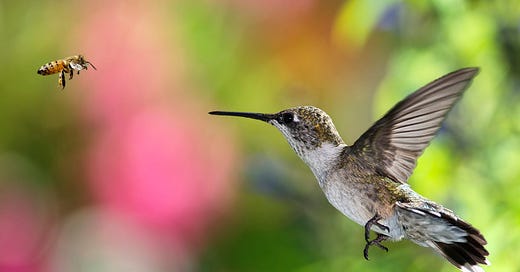



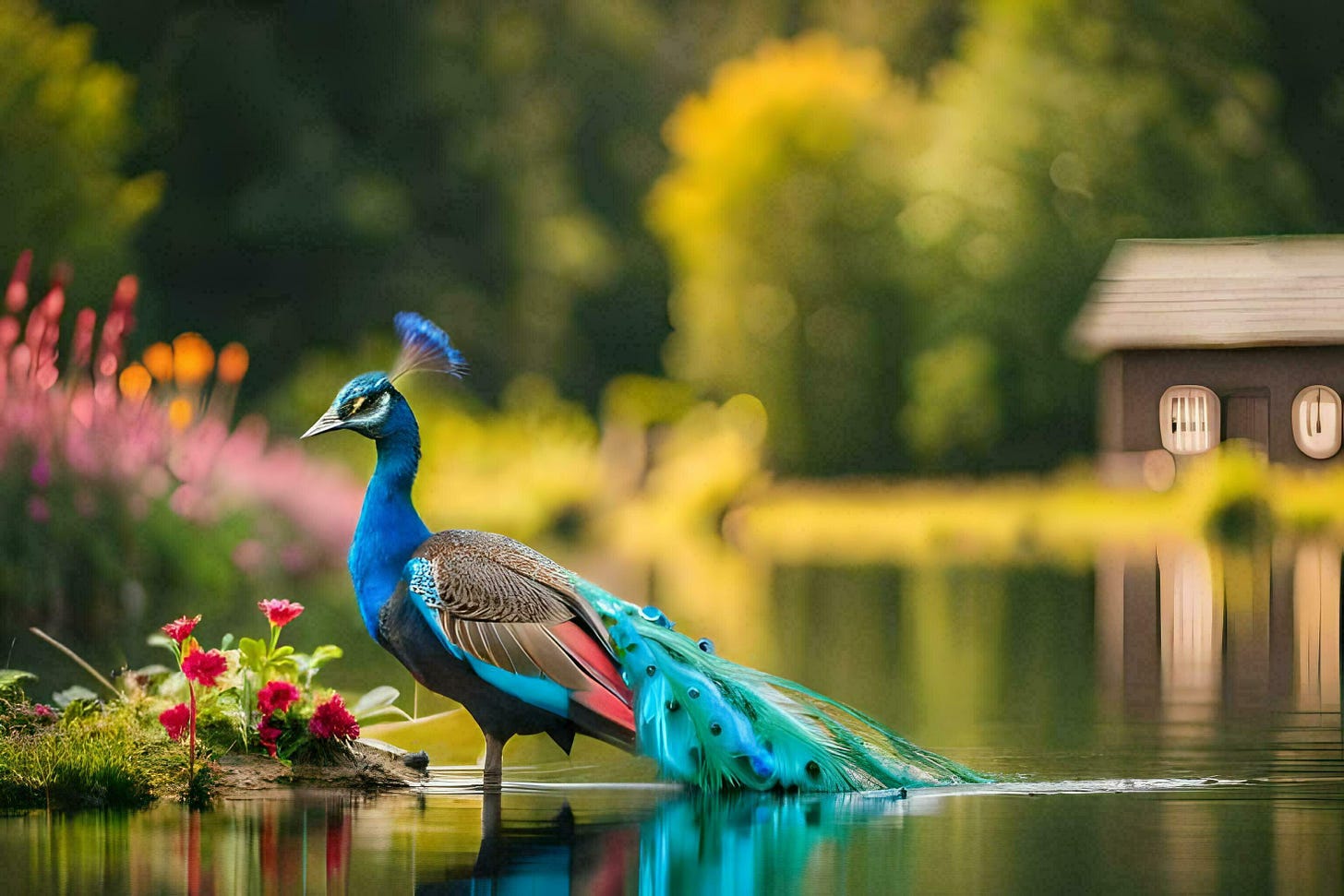
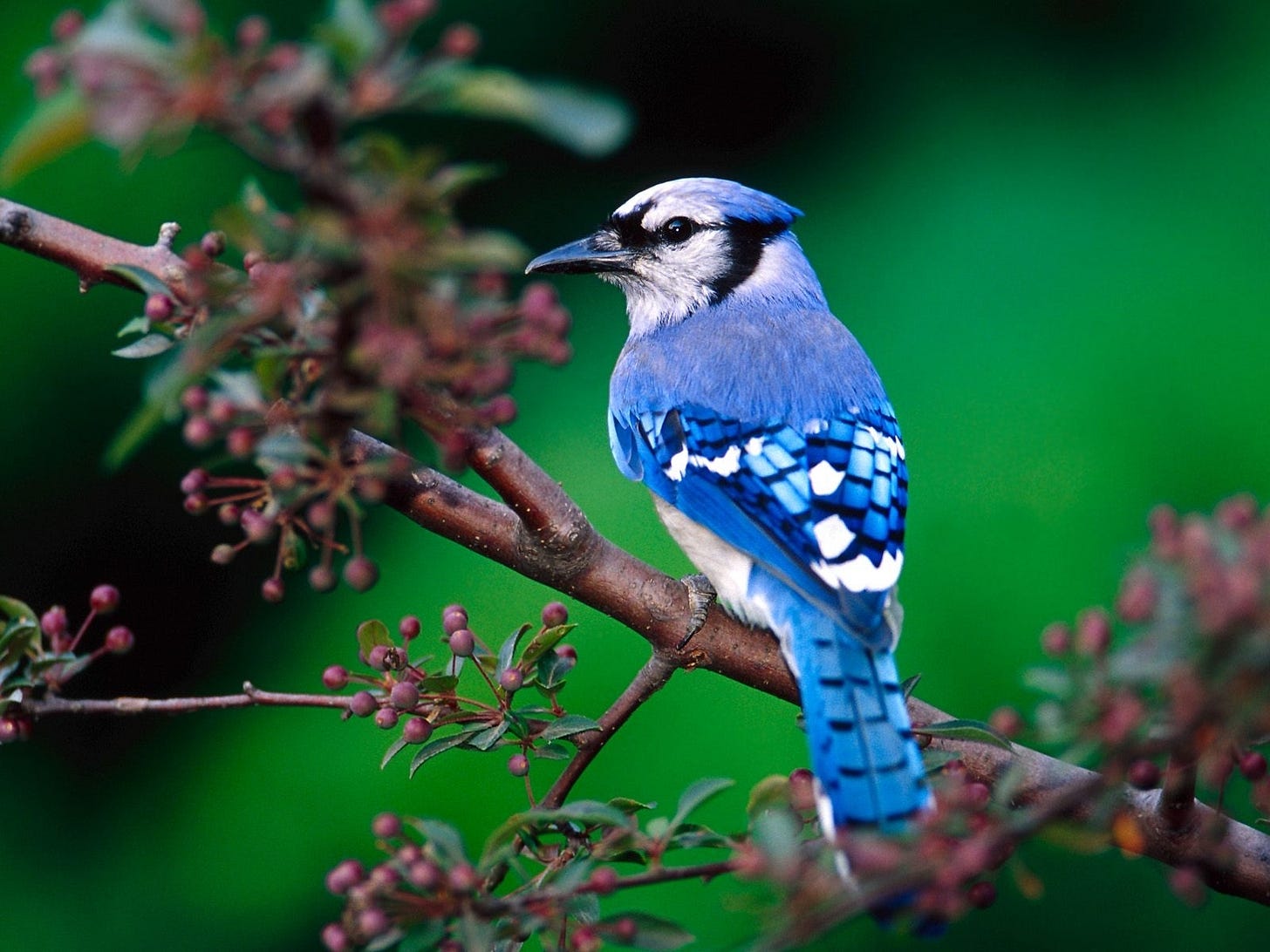

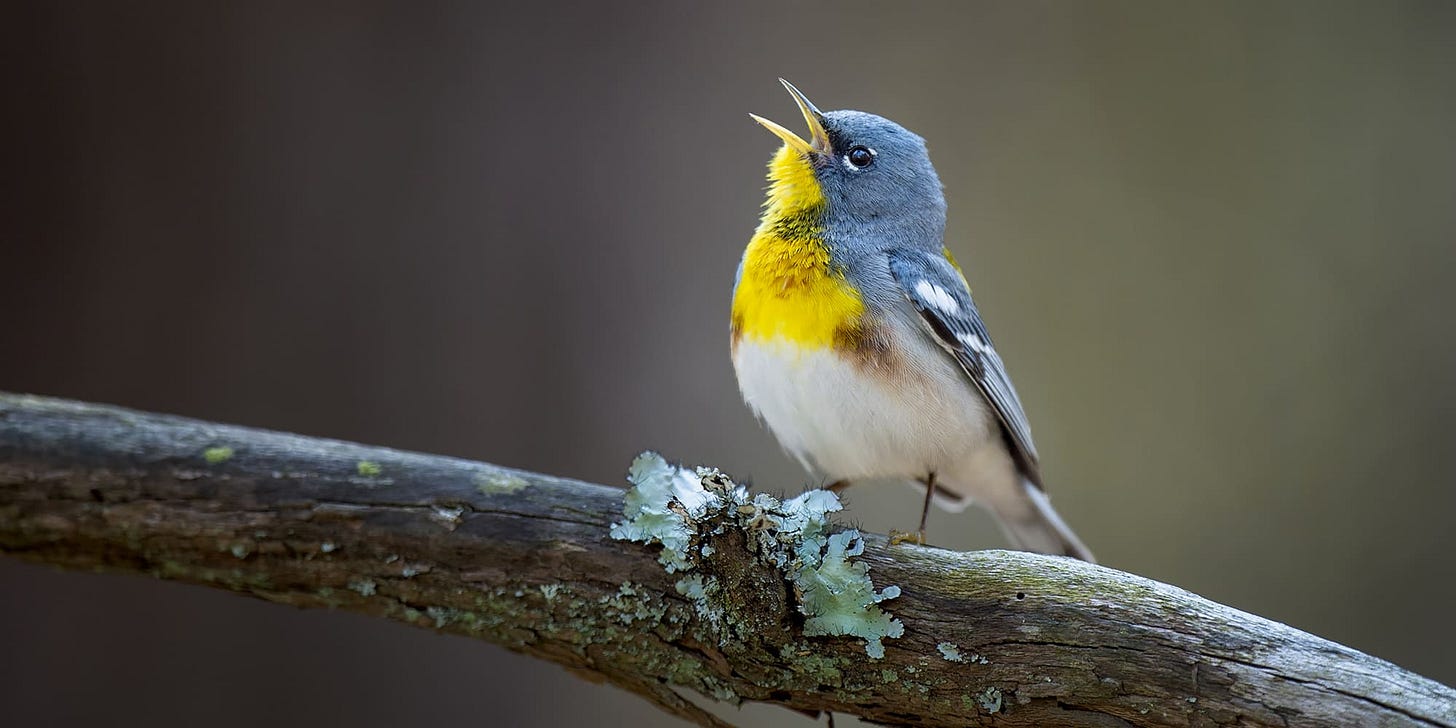
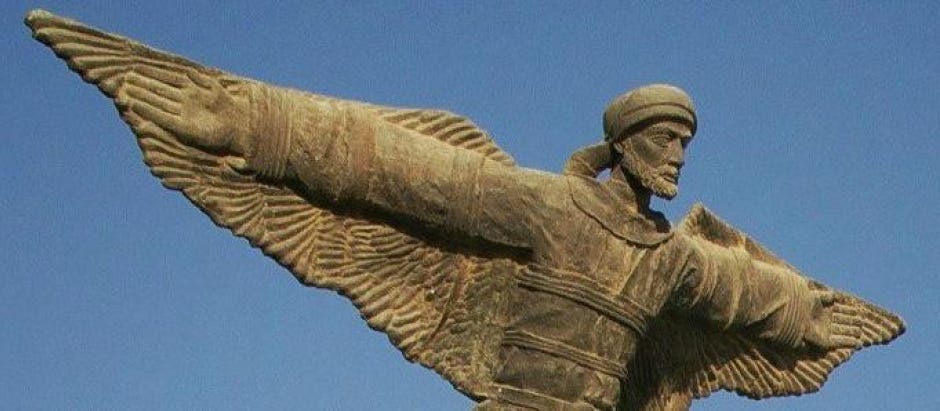
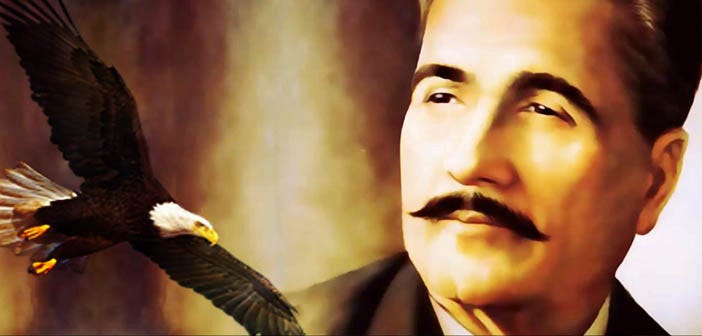
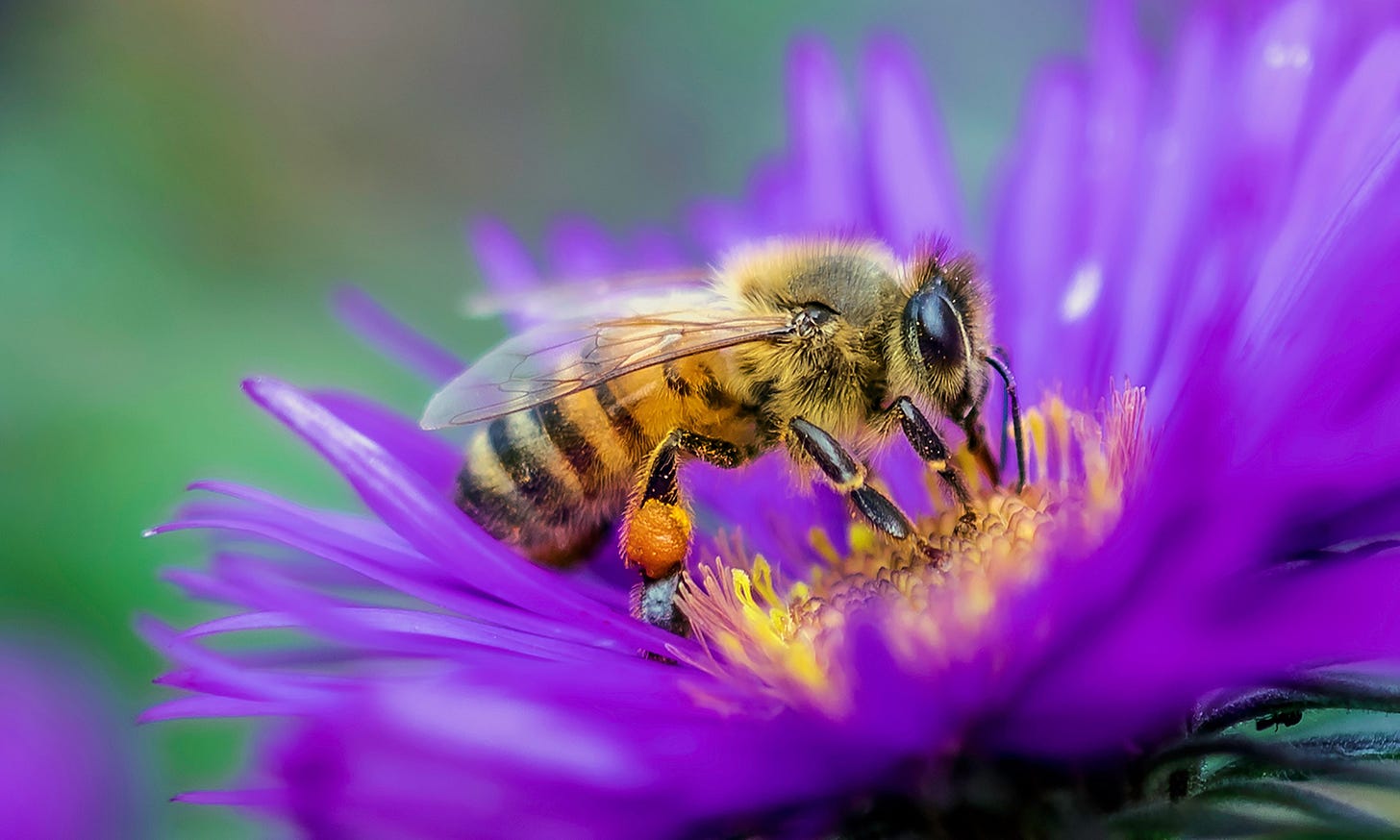
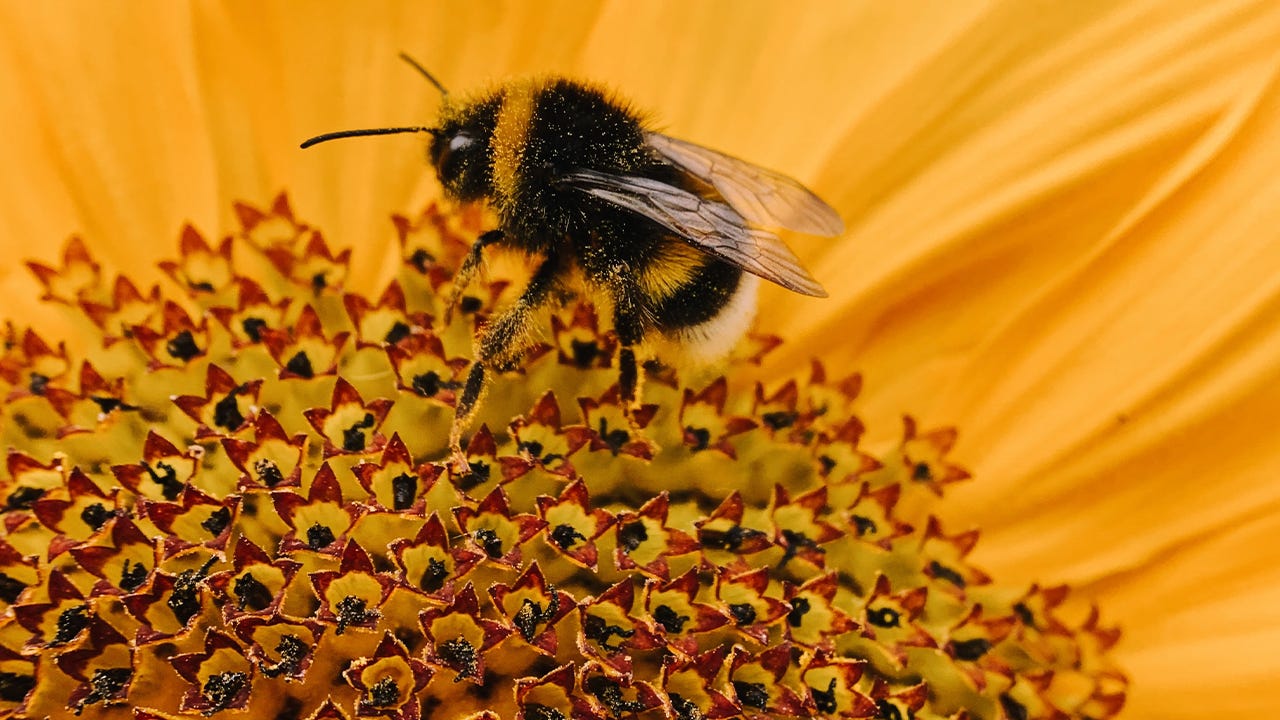
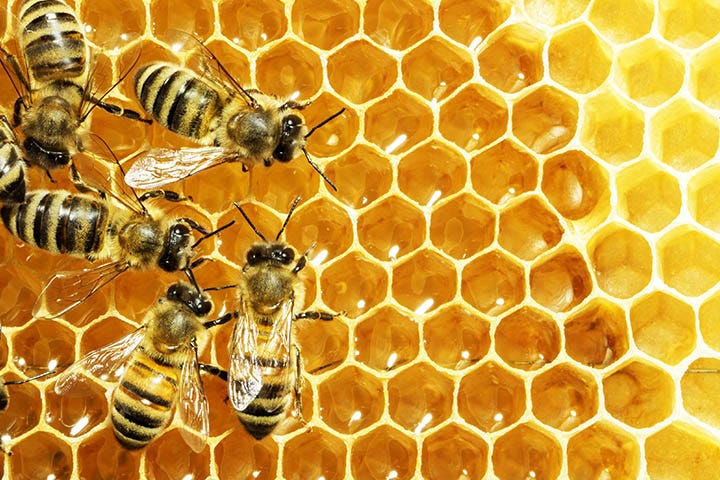
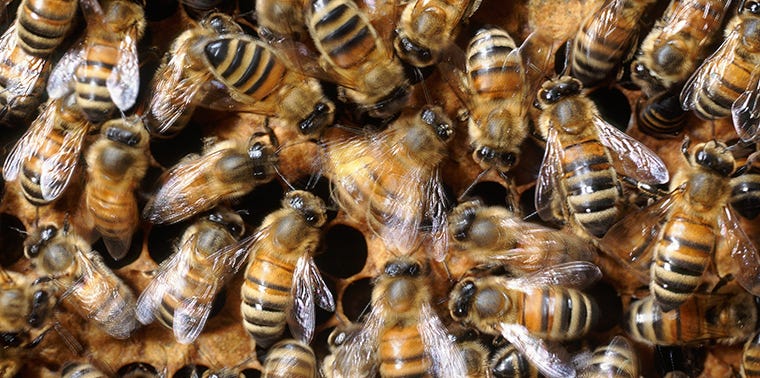

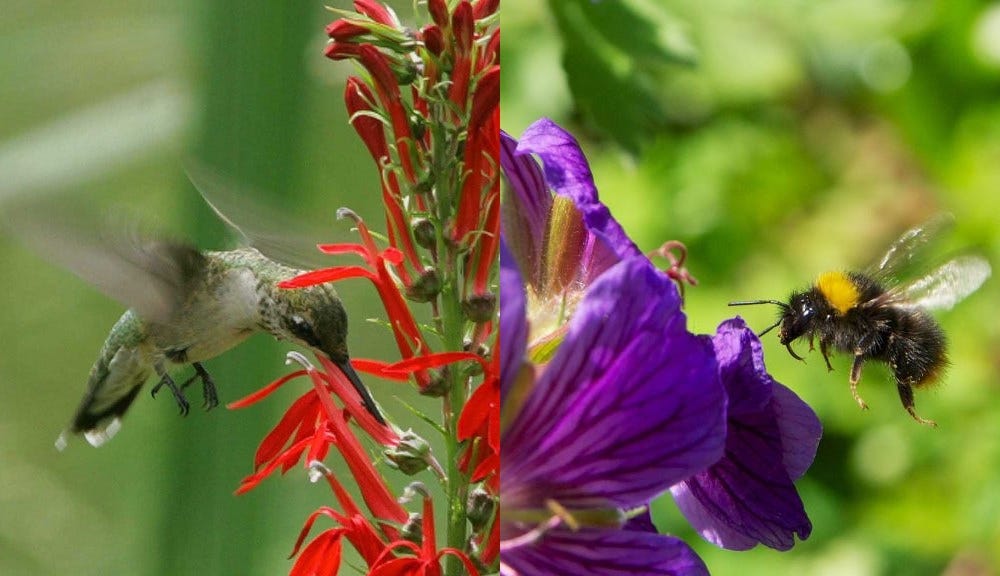


Is this all what got discussed over that Zoom?
Spot on!